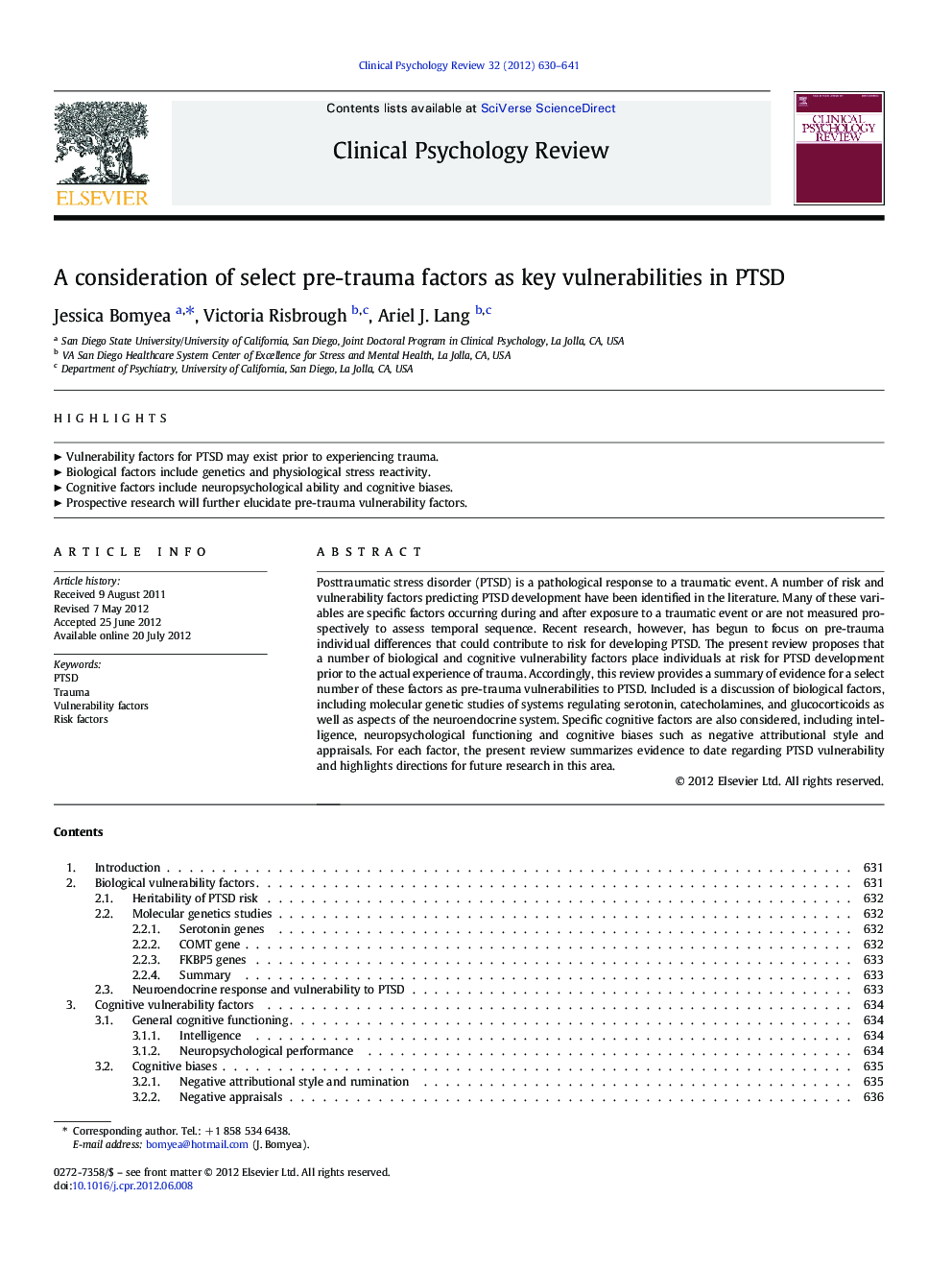| کد مقاله | کد نشریه | سال انتشار | مقاله انگلیسی | نسخه تمام متن |
|---|---|---|---|---|
| 903698 | 916585 | 2012 | 12 صفحه PDF | دانلود رایگان |

Posttraumatic stress disorder (PTSD) is a pathological response to a traumatic event. A number of risk and vulnerability factors predicting PTSD development have been identified in the literature. Many of these variables are specific factors occurring during and after exposure to a traumatic event or are not measured prospectively to assess temporal sequence. Recent research, however, has begun to focus on pre-trauma individual differences that could contribute to risk for developing PTSD. The present review proposes that a number of biological and cognitive vulnerability factors place individuals at risk for PTSD development prior to the actual experience of trauma. Accordingly, this review provides a summary of evidence for a select number of these factors as pre-trauma vulnerabilities to PTSD. Included is a discussion of biological factors, including molecular genetic studies of systems regulating serotonin, catecholamines, and glucocorticoids as well as aspects of the neuroendocrine system. Specific cognitive factors are also considered, including intelligence, neuropsychological functioning and cognitive biases such as negative attributional style and appraisals. For each factor, the present review summarizes evidence to date regarding PTSD vulnerability and highlights directions for future research in this area.
► Vulnerability factors for PTSD may exist prior to experiencing trauma.
► Biological factors include genetics and physiological stress reactivity.
► Cognitive factors include neuropsychological ability and cognitive biases.
► Prospective research will further elucidate pre-trauma vulnerability factors.
Journal: Clinical Psychology Review - Volume 32, Issue 7, November 2012, Pages 630–641